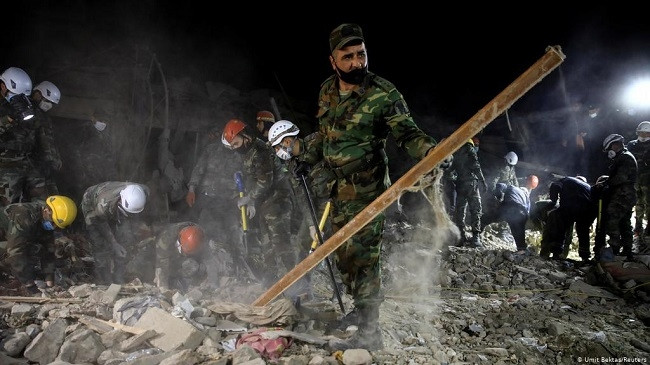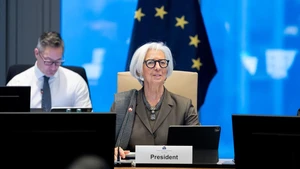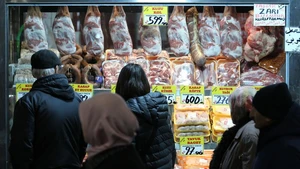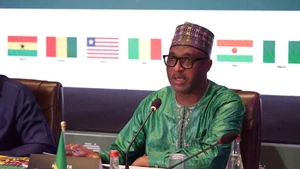"This decision was taken following the statement of the Presidents of the French Republic, the Russian Federation and the United States of America, representing the co-chair countries of the OSCE (the Organization for Security and Co-operation in Europe) Minsk Group, of Oct. 1, 2020, the Statement by the co-chairs of the OSCE Minsk Group of Oct. 5, and in line with Moscow Statement of Oct. 10, 2020," the Armenian Foreign Ministry said in a statement.
Azerbaijan confirmed the agreement in an identical statement.
It is the second truce agreement both sides have agreed on in weeks. The first one came on Oct. 10, following lengthy negotiations in Moscow on Oct. 9, which the two countries have later accused each other of breaching.
The new truce agreement was announced shortly after Russian Foreign Minister Sergey Lavrov held telephone conversations with his counterparts from both Armenia and Azerbaijan, during which he urged both sides to "strictly follow" the first truce agreement.
According to a statement by the Russian Foreign Ministry, the three ministers also reaffirmed the importance of starting "substantive negotiations" to peacefully settle the conflict.
Hours after Saturday's announcement, the Elysee said in a statement that French President Emmanuel Macron welcomed the new agreement.
"This ceasefire must be unconditional and strictly observed by both parties. France will be very attentive to this, and will remain committed so that hostilities cease on a lasting basis and that credible discussions can quickly begin," the statement said.
Earlier on Saturday, Azerbaijan's law enforcement authorities said at least 12 civilians were killed and 40 others wounded when Armenian armed forces fired missiles into Azerbaijan's second largest city of Ganja.
In response, Artsrun Hovhannisyan, spokesman for the Armenian Defense Ministry, denied the attack and accused Baku of continuing to shell some areas inside Nagorno-Karabakh, including Stepanakert, the major city of the mountainous region.
Armenia and Azerbaijan have been at loggerheads over the Nagorno-Karabakh region since 1988. Peace talks have been held since 1994 when a ceasefire was reached, but there still have been sporadic minor clashes.
















